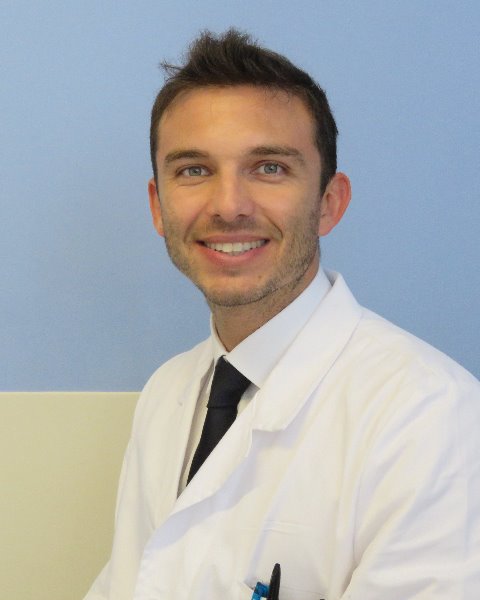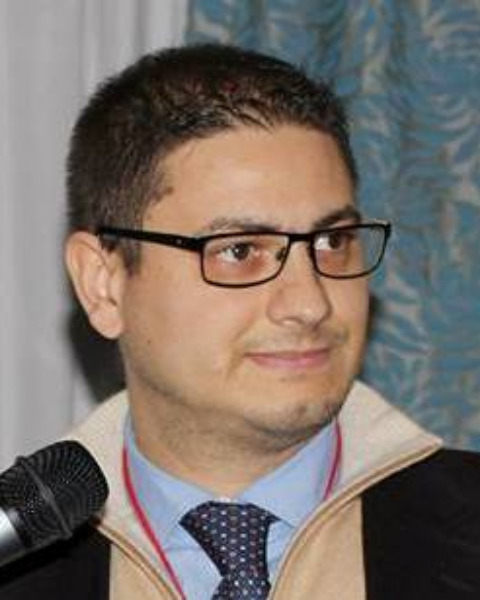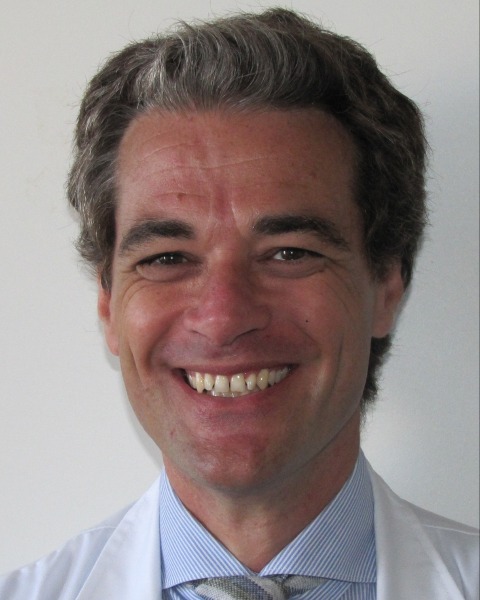Sarcoma
non-CME
P58: Immune infiltrate of primary retroperitoneal sarcomas (RPS): a prognostic study

Dario Callegaro, MD (he/him/his)
Surgical Oncologist
Fondazione IRCCS Istituto Nazionale dei Tumori, Milan, United StatesDisclosure information not submitted.

Dario Callegaro, MD (he/him/his)
Surgical Oncologist
Fondazione IRCCS Istituto Nazionale dei Tumori, Milan, United StatesDisclosure information not submitted.
- VV
Viviana Vallacchi, PhD
Cancer Immunotherapy
Fondazione IRCCS Istituto Nazionale Tumori, United StatesDisclosure information not submitted.
- SI
Sara Iadecola, MSc
Department of Applied Research and Technological Development
Fondazione IRCCS Istituto Nazionale dei Tumori, United StatesDisclosure information not submitted.
- SB
Silvia Brich, PhD
Pathology Department
Fondazione IRCCS Istituto Nazionale Tumori, United StatesDisclosure information not submitted.
- AB
Alessia Bertolotti, MSc
Pathology Department
Fondazione IRCCS Istituto Nazionale Tumori, United StatesDisclosure information not submitted.
- PC
Paola Collini, MD
Pathology Department
Fondazione IRCCS Istituto Nazionale Tumori, United StatesDisclosure information not submitted.
- FP
Federico Passarelli, MSc
Pathology Department
Fondazione IRCCS Istituto Nazionale Tumori, United StatesDisclosure information not submitted.
- LB
Laura Bergamaschi, MSc
Cancer Immunotherapy
Fondazione IRCCS Istituto Nazionale Tumori, United StatesDisclosure information not submitted.

Marco Fiore, MD
Surgical Oncologist
Fondazione IRCCS Istituto Nazionale dei Tumori
Milan, ItalyDisclosure information not submitted.
- CC
Chiara Colombo, MD
Surgical Oncologist
Fondazione IRCCS Istituto Nazionale Tumori, United StatesDisclosure information not submitted.
- SR
Stefano Radaelli, MD
Surgical Oncologist
Fondazione IRCCS Istituto Nazionale Tumori, United StatesDisclosure information not submitted.
- RS
Roberta Sanfilippo, MD
Medical Oncologist
Fondazione IRCCS Istituto Nazionale Tumori, United StatesDisclosure information not submitted.
- SS
Silvia Stacchiotti, MD
Medical Oncologist
Fondazione IRCCS Istituto Nazionale dei Tumori, United StatesDisclosure information not submitted.
- CM
Carlo Morosi, MD
Radiology attending
Fondazione IRCCS Istituto Nazionale dei Tumori, Milan, United StatesDisclosure information not submitted.
- CS
Claudia Sangalli, MD
Radiotherapy attending
Fondazione IRCCS Istituto Nazionale dei Tumori, Milan, United StatesDisclosure information not submitted.
- RM
Rosalba Miceli, PhD
Department of Applied Research and Technological Development
Fondazione IRCCS Istituto Nazionale Tumori, United StatesDisclosure information not submitted.

Alessandro Gronchi, MD, FSSO
Chair Sarcoma Service - Head of the Department of Surgery
Fondazione IRCCS Istituto Nazionale dei Tumori
Milano, ItalyDisclosure(s): Bayer HealthCare Pharmaceuticals Inc.: Advisor (Ongoing); Deciphera: Speaker (Ongoing); Eli Lilly & Company: Advisor (Terminated, January 1, 2020); Nanobiotix: Research Grant (Terminated, December 31, 2021); Novartis: Advisor (Terminated, November 5, 2022); pfizer: Advisor (Terminated, November 5, 2022); PharmaMar: Advisor (Ongoing), Research Grant (Ongoing); SpringWorks: Advisor (Ongoing)
- SP
Sandro Pasquali, PhD
Surgical Oncologist
Fondazione IRCCS Istituto Nazionale dei Tumori, Milan, United StatesDisclosure information not submitted.
Poster Presenter(s)
Author(s)
Novel biomarkers are needed to stratify prognosis of patients with RPS. A characterization of tumor immune infiltrate in RPS is lacking. This study exploited the RPS retrospective cohort of the SARCOMICS observational study to analyze immune infiltrating cells and assess their association with patient prognosis.
Methods: This retrospective study analyzed data and tissue of patients with primary RPS who underwent surgery (2011-15) included in the retrospective cohort of SARCOMICS, an institutional study that aims at improving risk stratification in sarcoma. Tissue MicroArray (TMA) were generated by sampling the area of each tumor with the highest lymphocyte infiltrate. Immune markers CD3, CD4, CD8, CD20, CD163 and PD1 were evaluated and no. of positive cells/mm2 determined. In the dedifferentiated liposarcoma (DDLPS), both the well and dedifferentiated (WD and DD) components were considered. The association of disease-free and overall survival (DFS and OS) with immune markers was evaluated. The Sarculator nomogram scores (NS) were calculated for all patients together with each marker in order to (indirectly) adjust the marker’s hazard ratio for the prognostic characteristics included in the nomogram.
Results:
108 patients (62% DDLPS, 12% WDLPS, 18% LMS) were included, with a median follow-up of 86 months (IQR 70-102). Five- and 10-year DFS were 50% (42-61%) and 34% (25-45%), respectively. Five- and 10-year OS were 72% (64-81%) and 54% (43-67%), respectively.
PD1 positive cells showed a high correlation with CD3 [correlation coefficient (CC)=0.95] and CD8 (CC=0.94) positive cells. CD3 and CD8 positive cells resulted highly correlated (CC=0.93) as well as CD4 and CD20 positive cells (CC=76%). In DDLPS, CD163 positive cells in WD and DD components were correlated (CC=0.72).
The NS was associated with DFS (HR=2.10, 95%CI 1.42-3.09, P< 0.001) and OS (HR=2.03, 95%CI 1.41-2.93, P< 0.001). CD163 was the only marker that showed a statistically significant association with DFS (HR=1.35, 95%CI 1.15-1.58, P< 0.001, Fig.1A) or OS (HR=1.47, 95%CI 1.22-1.63, P< 0.001, Fig 1B). These associations held when adjusted for the NS in the multivariable analysis for both DFS (HR=1.23, 95%CI 1.04-1.46, P=0.018) and OS (HR=1.30, 95%CI 1.07-1.58, P=0.007).
Conclusions:
CD163 positive cells stratify prognosis of patients with primary RPS supporting their pro-tumor and immunosuppressive effect. Further analysis are needed to validate this prognostic biomarker in an independent series and to characterize myeloid cell sub-populations.
Learning Objectives:
- describe the immune infiltrate of retroperitoneal sarcoma
- discuss how prognostic nomograms could help identifying new independent prognostic markers
- discuss the prognostic implications of immune infiltrate subsets in retroperitoneal sarcoma
